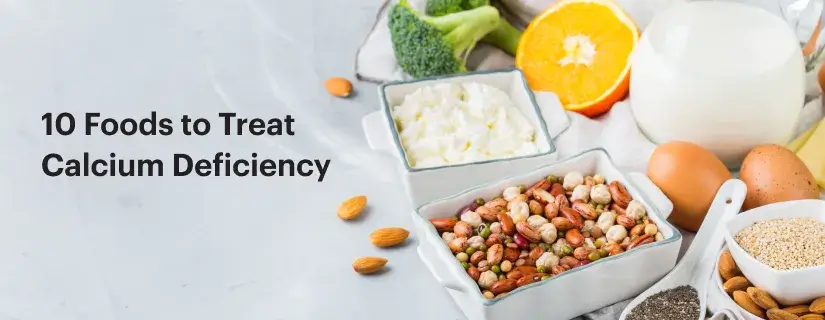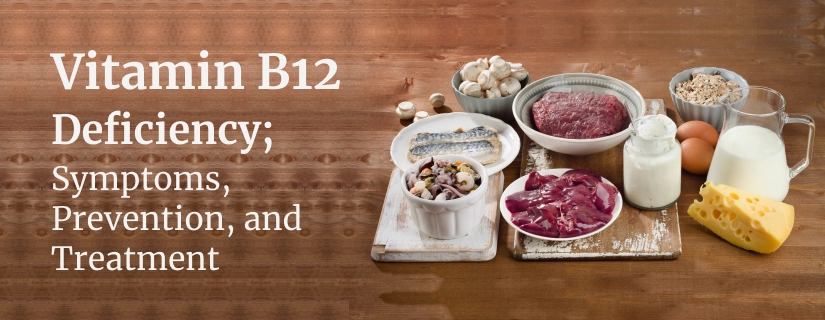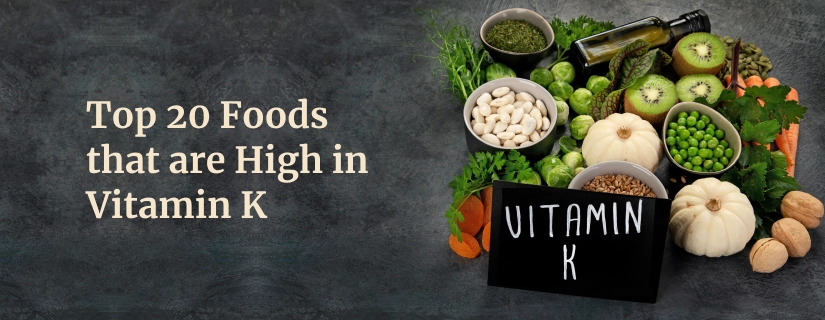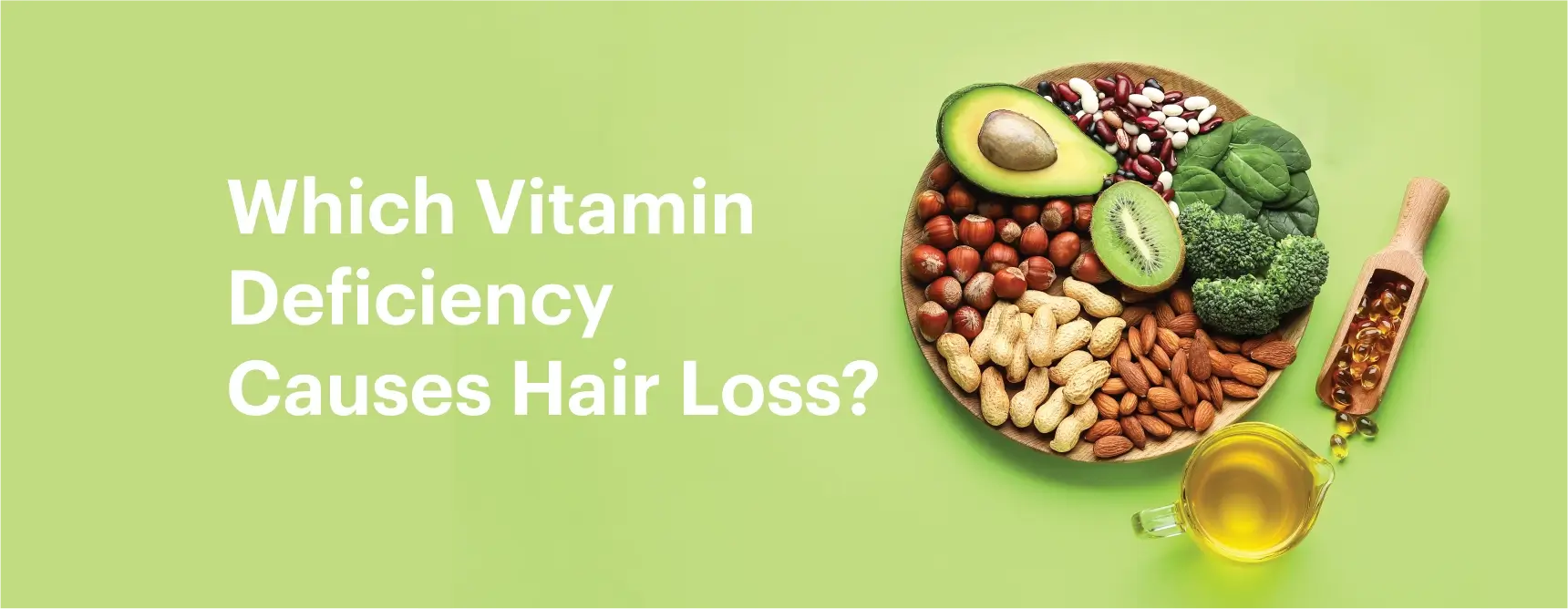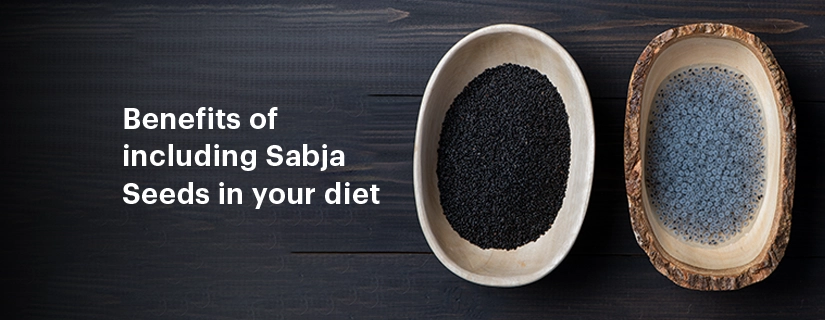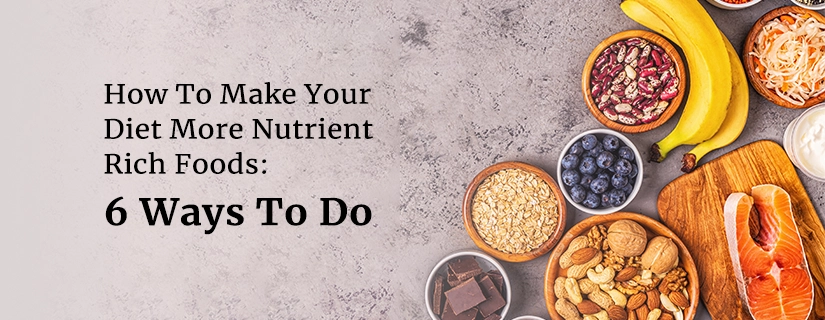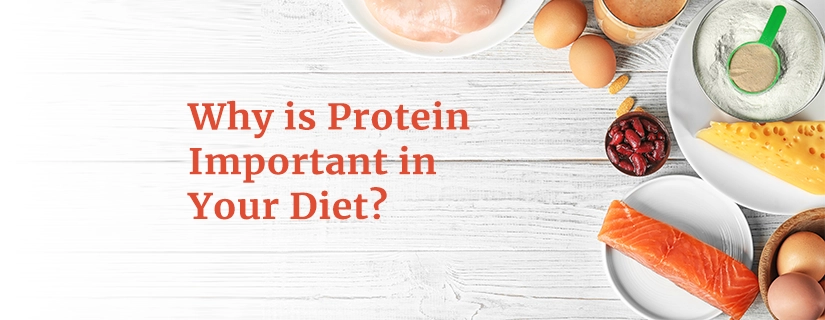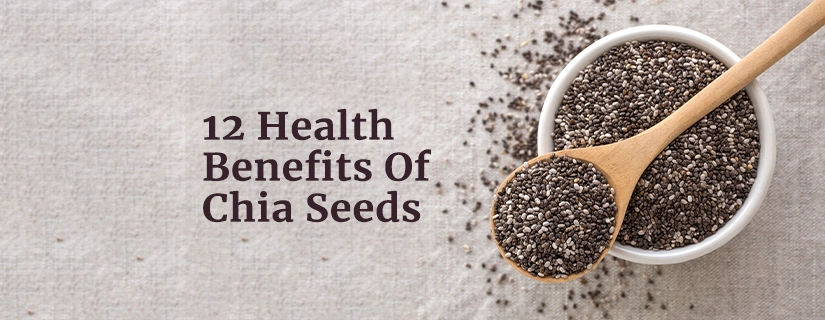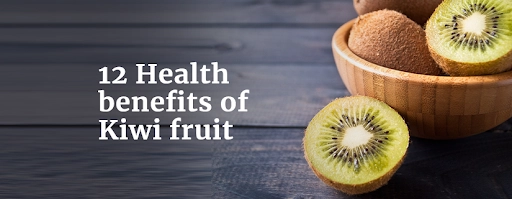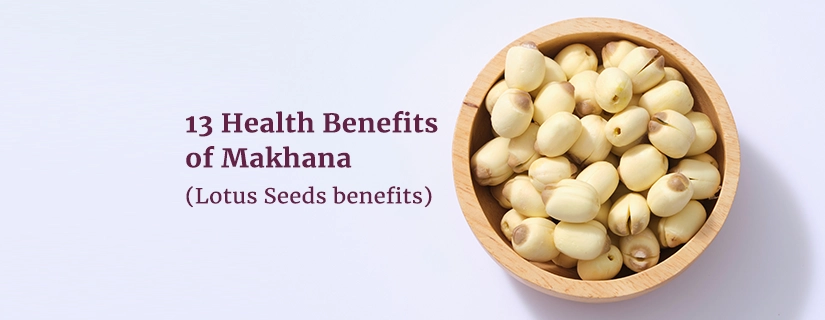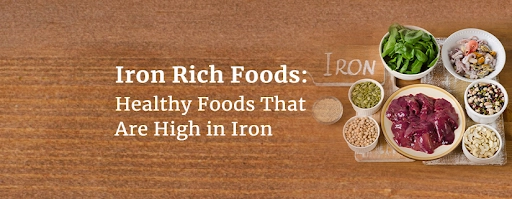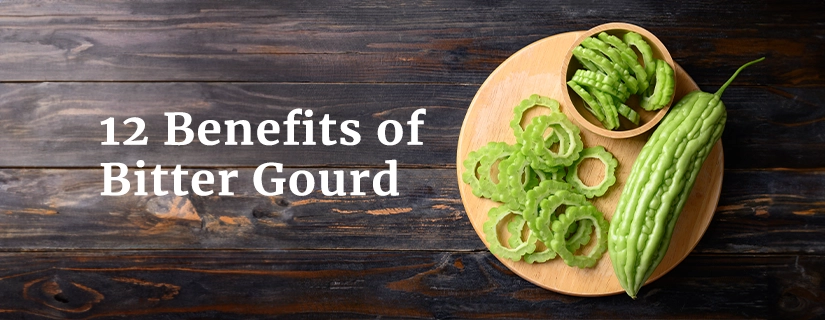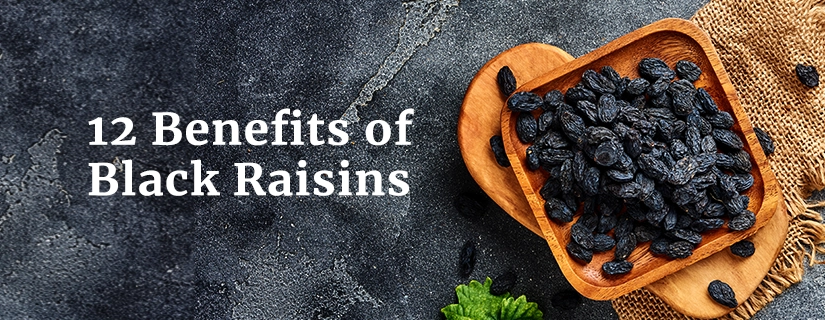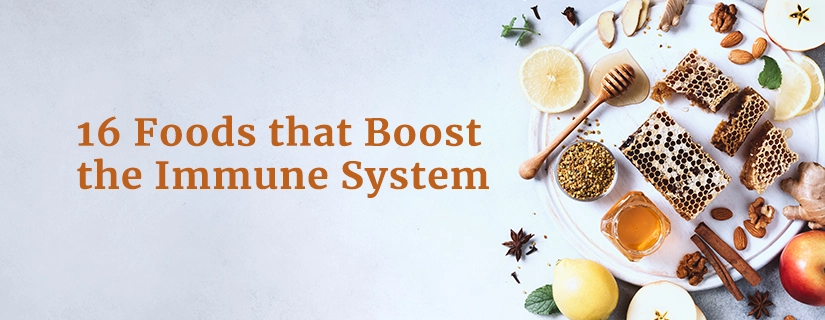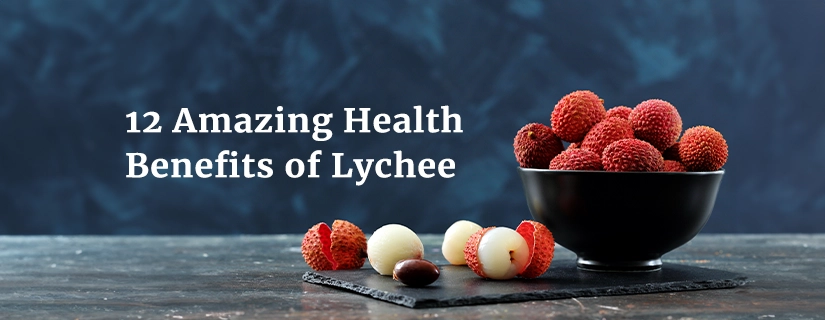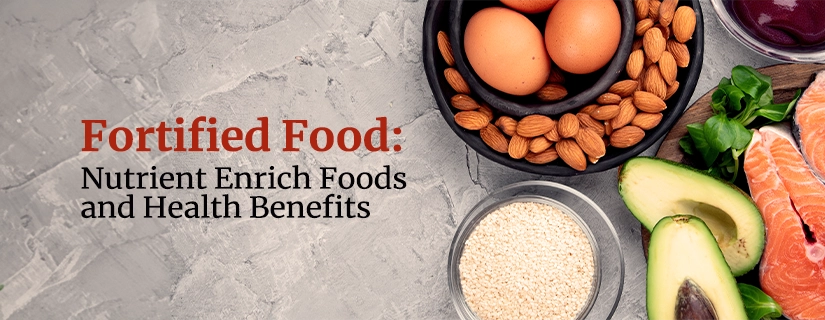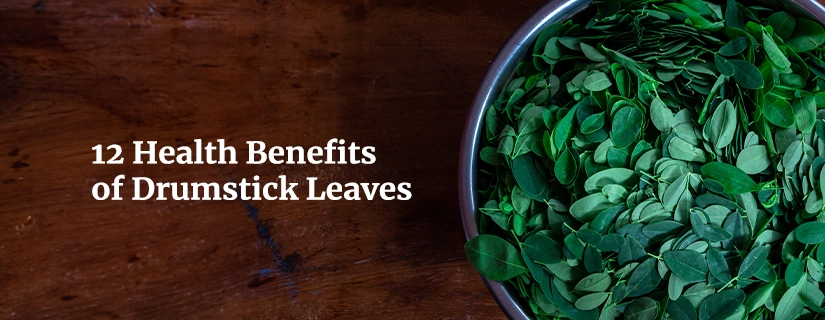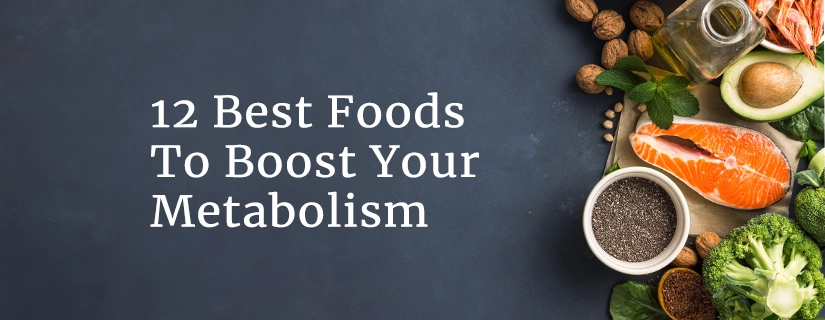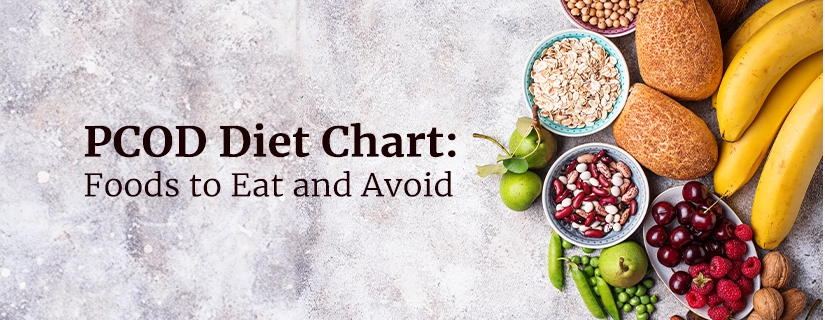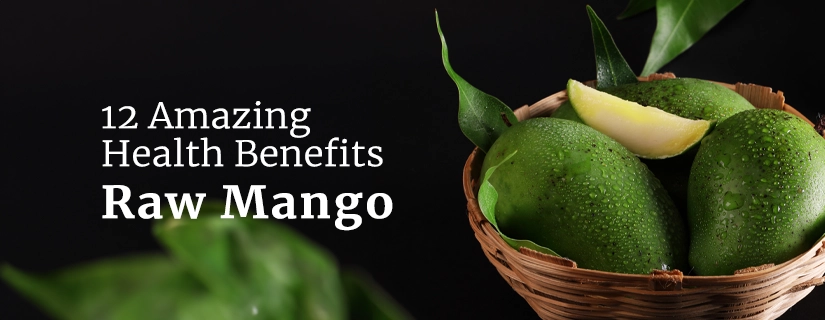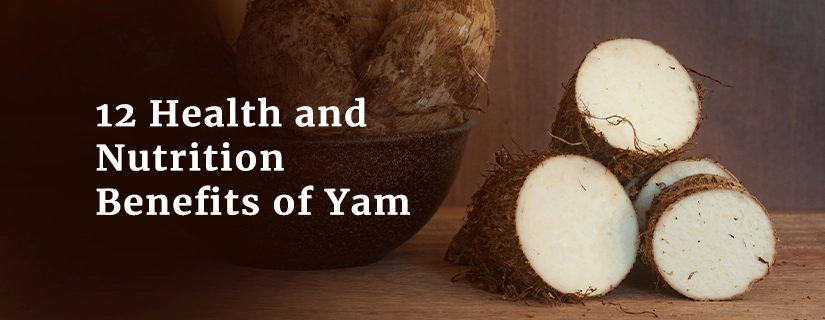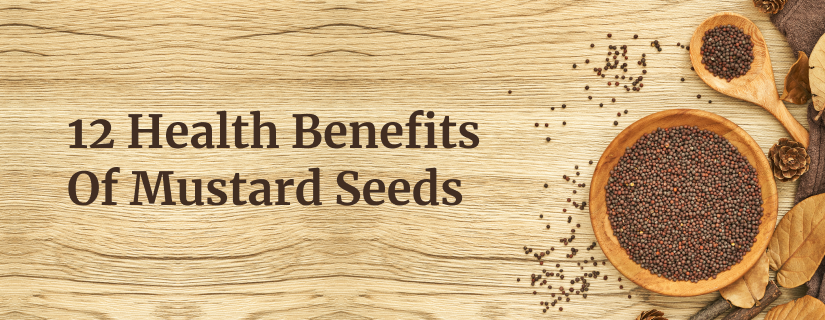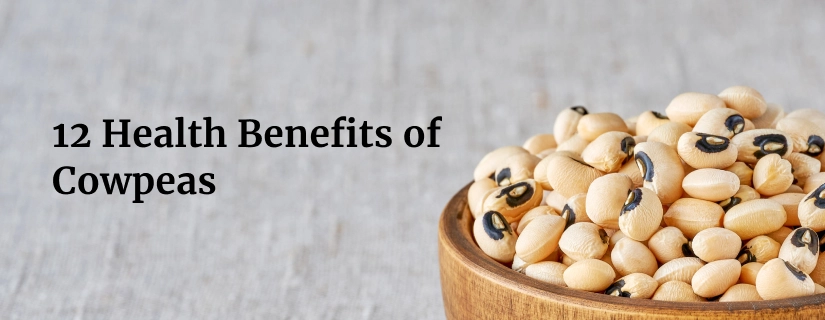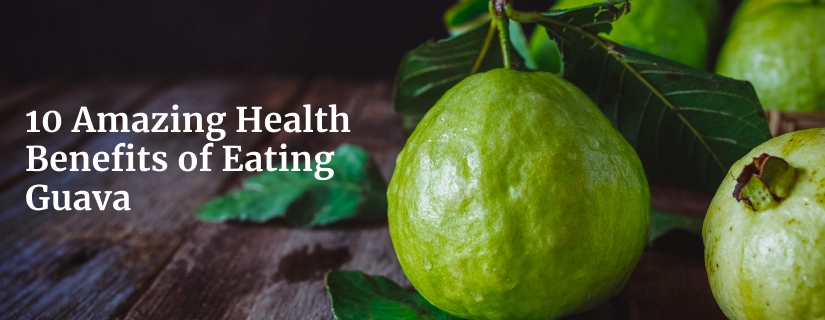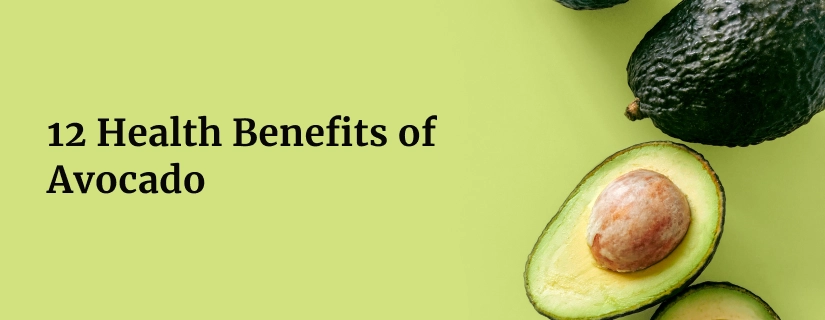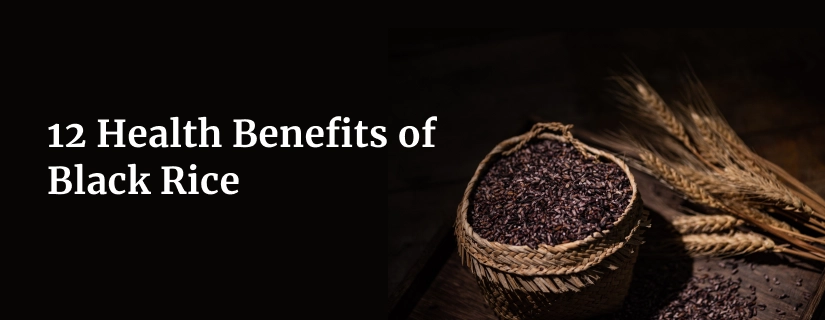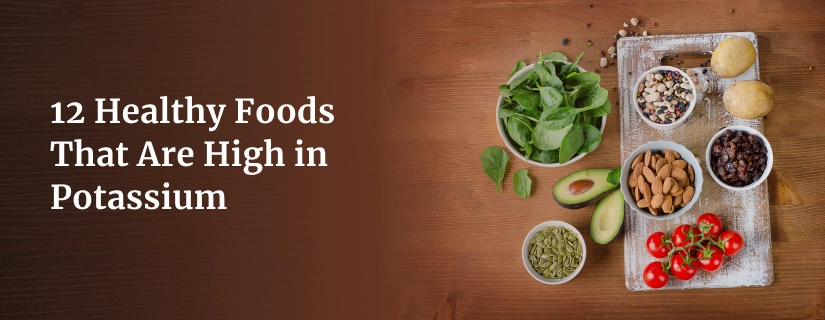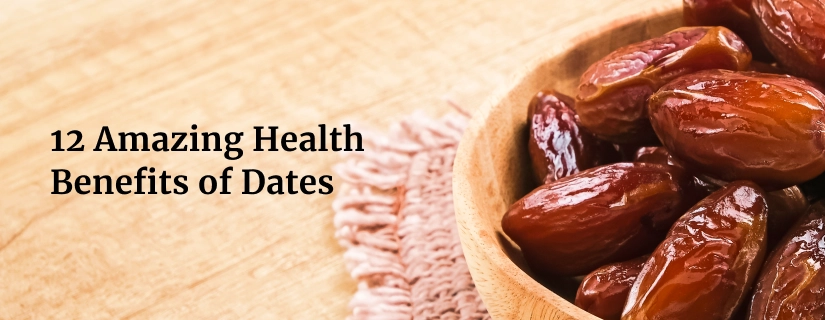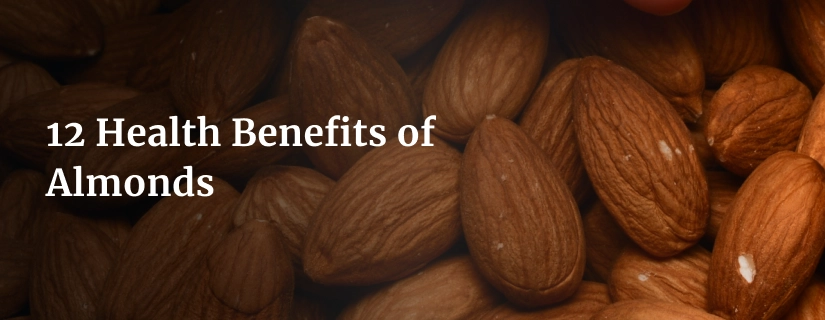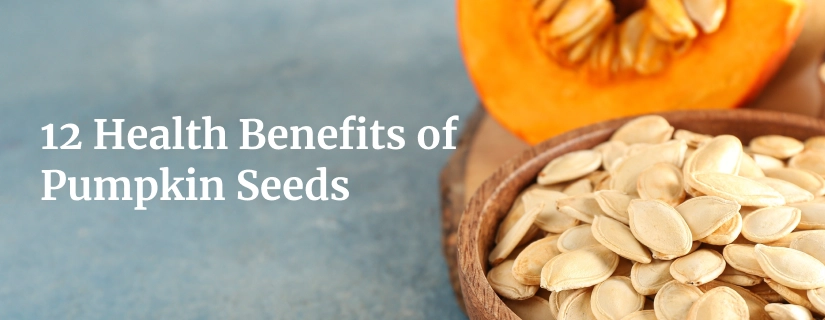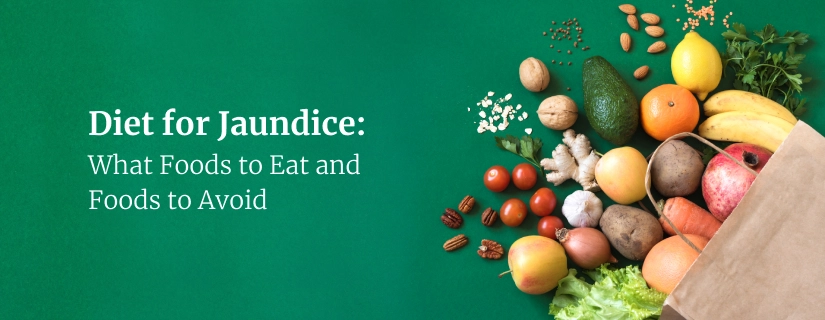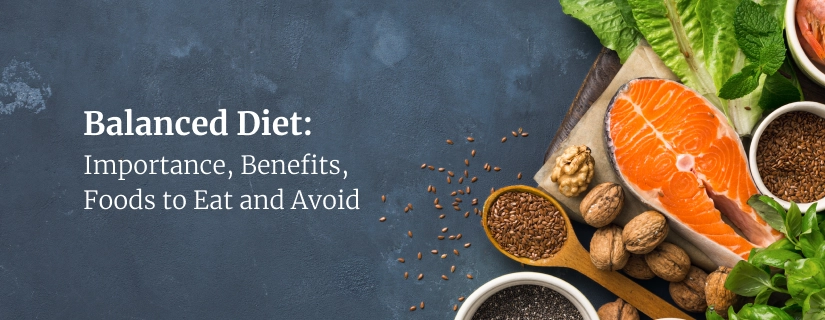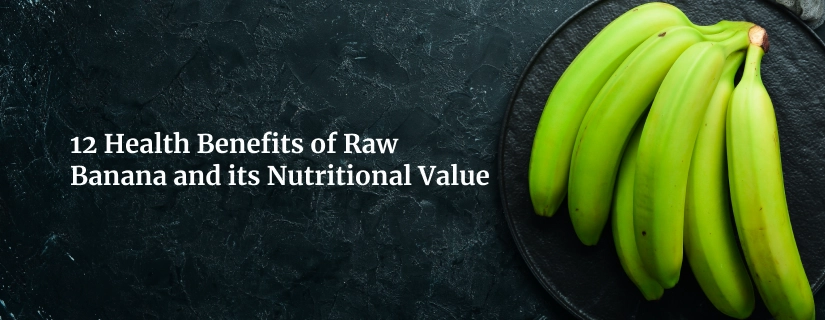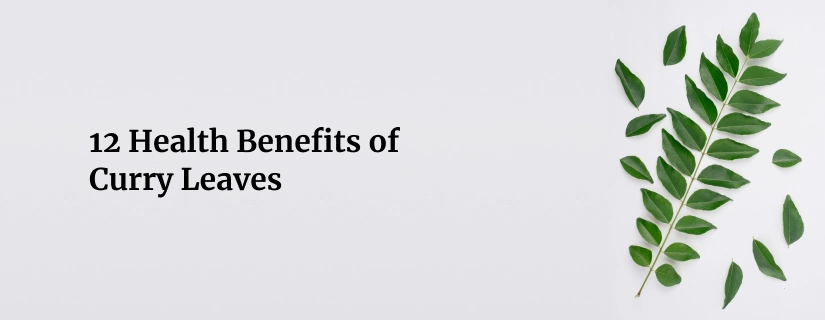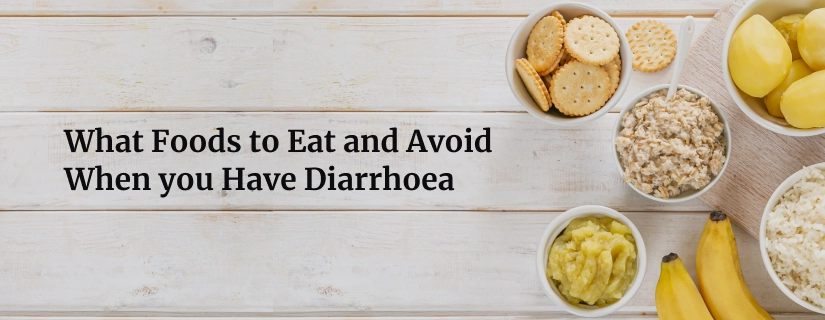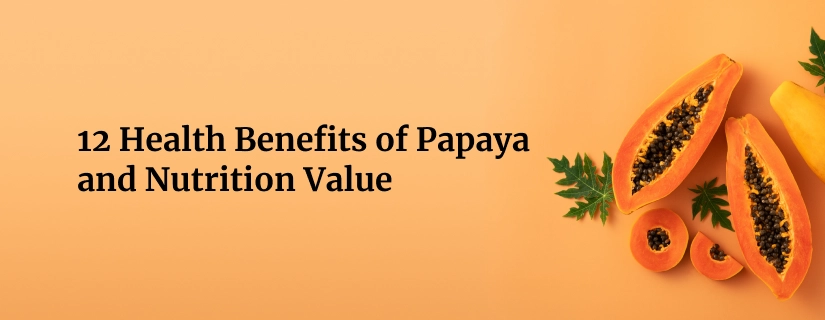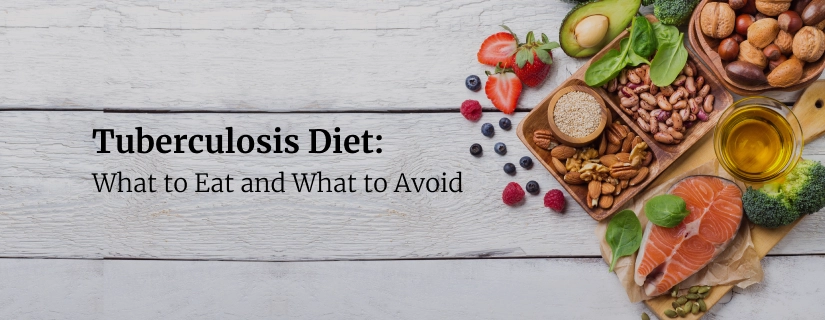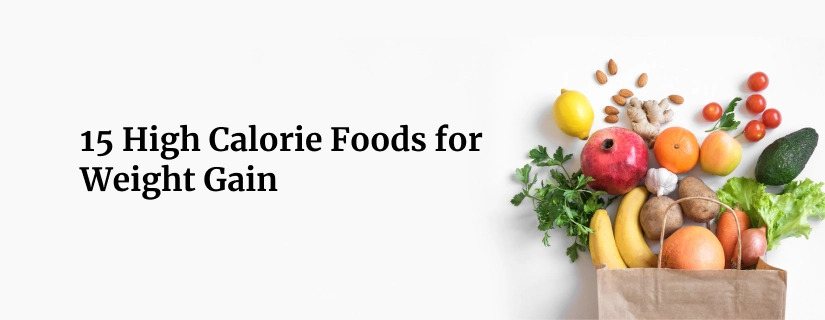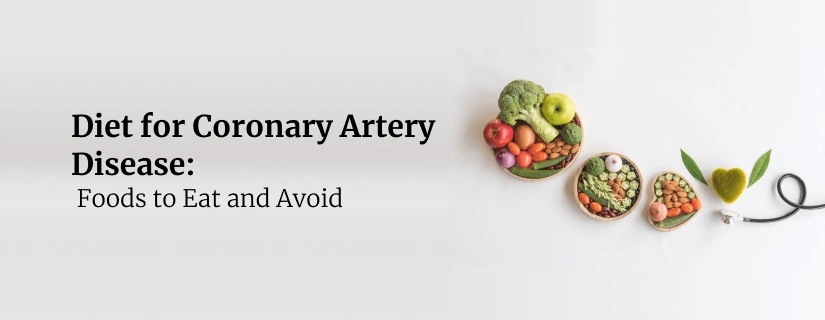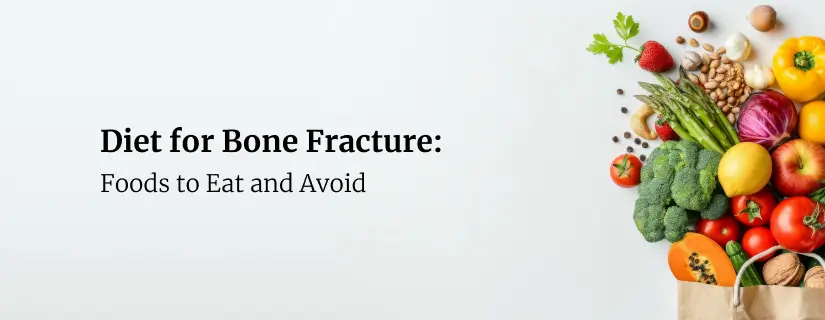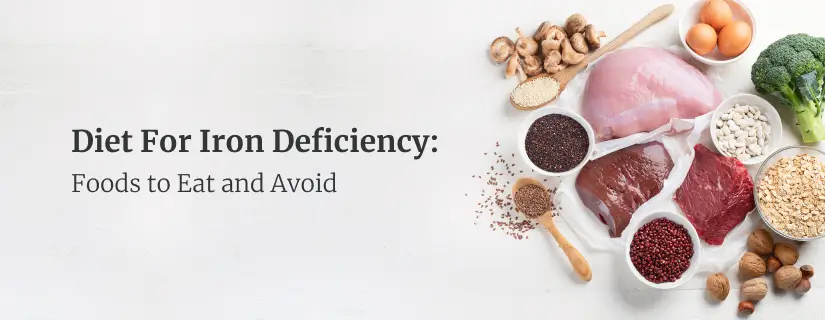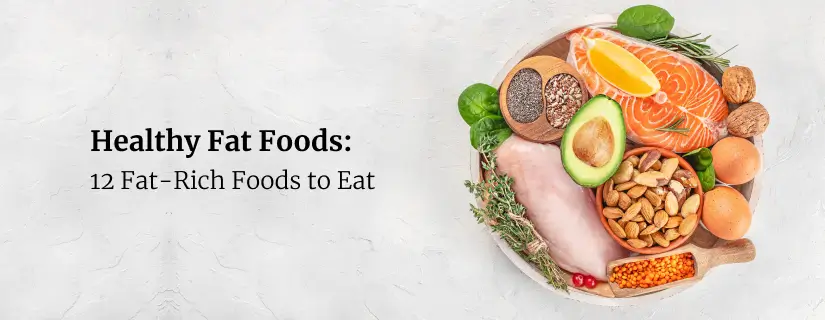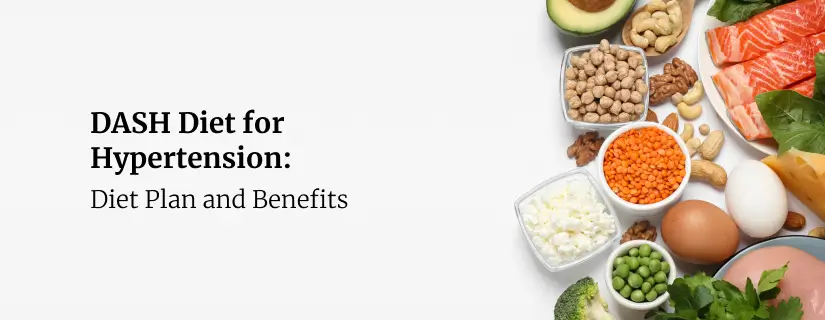-
Doctors
-
Specialities & Treatments
Centre of Excellence
Specialties
Treatments and Procedures
Hospitals & Directions HyderabadCARE Hospitals, Banjara Hills CARE Outpatient Centre, Banjara Hills CARE Hospitals, HITEC City CARE Hospitals, Nampally Gurunanak CARE Hospitals, Musheerabad CARE Hospitals Outpatient Centre, HITEC City CARE Hospitals, Malakpet
HyderabadCARE Hospitals, Banjara Hills CARE Outpatient Centre, Banjara Hills CARE Hospitals, HITEC City CARE Hospitals, Nampally Gurunanak CARE Hospitals, Musheerabad CARE Hospitals Outpatient Centre, HITEC City CARE Hospitals, Malakpet Raipur
Raipur
 Bhubaneswar
Bhubaneswar Visakhapatnam
Visakhapatnam
 Nagpur
Nagpur
 Indore
Indore
 Chh. Sambhajinagar
Chh. SambhajinagarClinics & Medical Centers
Book an AppointmentContact Us
Online Lab Reports
Book an Appointment
Consult Super-Specialist Doctors at CARE Hospitals
Gout Diet: What Foods to Eat and Avoid
Updated on 8 January 2026

Uric acid is a byproduct that our body produces when it breaks down purines. Purines are present in foods. Our body can also make them. Usually, uric acid dissolves in our blood and is eliminated through urine. But when uric acid levels increase from their borderline levels, it can accumulate in our joints and cause gout. Gout is a type of arthritis that results in pain, swelling, and redness. Dealing with gout attacks can be both physically and emotionally challenging for individuals. Other health issues like kidney stones and certain kidney diseases can also elevate uric acid levels in the bloodstream. That's why understanding how diet affects acid levels is crucial for maintaining health and preventing these problems.
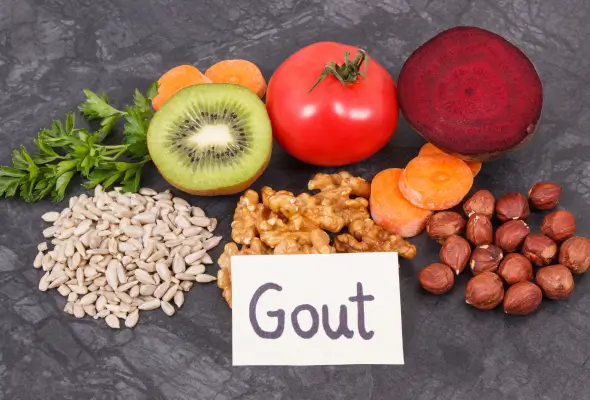
Diet for Gout: What to Eat and What Not to
Diet plays a role in uric acid levels in our body. Certain foods contain concentrations of purines, which can increase acid production, while others can help manage the optimal level of uric acids in our body.
Diet to Avoid Uric Acid (causes excessive accumulation)
It would help if you avoid or limit certain foods to maintain acid levels and reduce the risk of developing gout. These include:
- Purine-rich organ meats, like liver and kidney.
- Shellfish, sardines, anchovies, and other fish like mackerel and herring.
- Some vegetables, such as mushrooms, spinach, and cauliflower, contain higher purines.
- Corn syrup may increase uric acid levels.
Food to Eat for Uric Acid (reducing the acid levels)
It's essential to focus on hydrating while avoiding purine-rich foods to help reduce acid levels in your diet, and drinking plenty of water aids in flushing out the acid from your system and preventing its build-up. Make it a goal to consume eight glasses of water daily and increase your intake on hotter days or when you engage in more physical activity.
Certain fruits have shown positive effects on acid levels. Specifically, cherries help lower acid levels. Other fruits like strawberries, blueberries, and oranges are also beneficial due to their vitamin C content, which is among the best choices of foods to eat to avoid uric acid levels in the blood.
Including carbohydrates in your diet can also be on your list of foods to eat with gout. Whole grains such as oats, rice, and quinoa are primary sources of complex carbohydrates that can help regulate uric acid production.
Fat dairy products such as milk and yoghurt have an effect against gout by reducing uric acid levels, making them one of the foods to eat for uric acid.
Lifestyle Modifications
Along with sticking to a dietary plan and avoiding certain foods with gout, lifestyle changes can help manage acid levels. The following lifestyle changes can provide relief:
- Regular exercise can promote overall health. It can help you maintain a healthy weight. Try for at least 30 minutes of moderate-intensity exercise most days of the week.
- It's a great idea to avoid alcohol, especially beer. Drinking too much alcohol can increase acid production and decrease its excretion. This will increase your uric acid levels in the bloodstream. If you still wish to drink, it is good to drink in lesser quantities and go for lower-purine options like wine.
- It is also important to manage stress. Try relaxation techniques, take up hobbies more often, or talk to your friends and family.
- Make sure you're getting enough sleep. Poor sleep quality can impact acid levels and increase the risk of gout. Try to get 7 to 9 hours of good sleep every night. It can support your overall health and reduce the chances of getting gout.
When to Contact a Specialist
It can be difficult to manage acid levels with a uric acid diet plan alone, especially if you have health conditions or dietary restrictions. It is best to talk to doctors. Take insights from nutritionists and dietitians as they have specialisation in managing acid levels and related health conditions. They will give a personalised plan which will include food to avoid to reduce uric acid. These health experts make meal plans based on your needs and preferences. They will also navigate the complexities of your food restrictions and make sure you get all the necessary nutrients. They may also ask you to reduce the consumption of foods that can raise uric acid levels. These health experts can offer support, monitor your progress, and make any adjustments to your diet as required. Talking to a nutritionist or dietitian can significantly improve your ability to manage acid levels and improve your overall health.
Conclusion
It is important that you manage your uric acid levels through a proper diet. It helps maintain better health and prevents conditions like gout and kidney stones. Take charge of your well-being and manage acid levels through a diet containing foods to avoid eating with gout. The best thing you can do is avoid high-purine foods. Stay hydrated and include fruits, vegetables, whole grains, and fatty dairy products in your diet. Do regular exercises, practice stress management techniques and get enough sleep for better outcomes. If necessary, get advice from a nutrition specialist to better understand which uric acid foods to avoid and make choices that prioritise health for a fulfilling life.

ENQUIRY FORM
SELECT CATEGORIES
-
Neurosciences (16)
-
Neurology (38)
-
Neurosurgery (14)
-
Orthopaedics (48)
-
Oncology (33)
-
Obstetrics and gynecology (52)
-
Pulmonology (23)
-
Urology (20)
-
Nephrology (13)
-
Psychiatry (7)
-
Dietetics and Nutrition (111)
-
General Medicine (63)
-
Cardiac Sciences (32)
-
Vascular & Endovascular Surgery and Interventional Radiology (15)
-
Gastroenterology (46)
-
Endocrinology (23)
-
Plastic Surgery (10)
-
Critical Care Medicine (5)
-
COVID-19 (16)
-
Dermatology (16)
-
Emergency Care (1)
-
Ophthalmology (4)
-
Pediatrics (14)
-
Laparoscopic and Bariatric Surgery (8)
-
ENT (15)
-
Kidney Transplant (1)
-
Liver Transplantation and Hepatobiliary Surgery (5)
-
General Surgery (3)
-
Internal Medicine (5)
-
Medicine Information
Diet After Cesarean Section: Foods to Eat and Avoid
12 Health Benefits of Sunflower Seeds
YOU MAY ALSO LIKE
RECENT BLOGS
-

Rotablation Angioplasty: Benefits, Treatments, And Recovery Time
6 February 2026
Read More
-

What Is The Difference Between IUI and IVF?
6 February 2026
Read More
-

Pulmonary Stenosis: Symptoms, Causes, Diagnosis and Treatments
6 February 2026
Read More
-

Difference between Angioplasty and Angiography
6 February 2026
Read More
-

Hemoptysis (Coughing Up Blood): Causes, Treatment and Home Remedies
2 February 2026
Read More
-

Leg Weakness: Causes, Symptoms and Treatment
9 January 2026
Read More
-

Back Pain After C-Section: Causes and Home Remedies
9 January 2026
Read More
-

Belly Button Pain (Periumbilical Pain): Causes, Treatment and When to See a Doctor
9 January 2026
Read More
Have a Question?
If you cannot find answers to your queries, please fill out the enquiry form or call the number below. We will contact you shortly.





